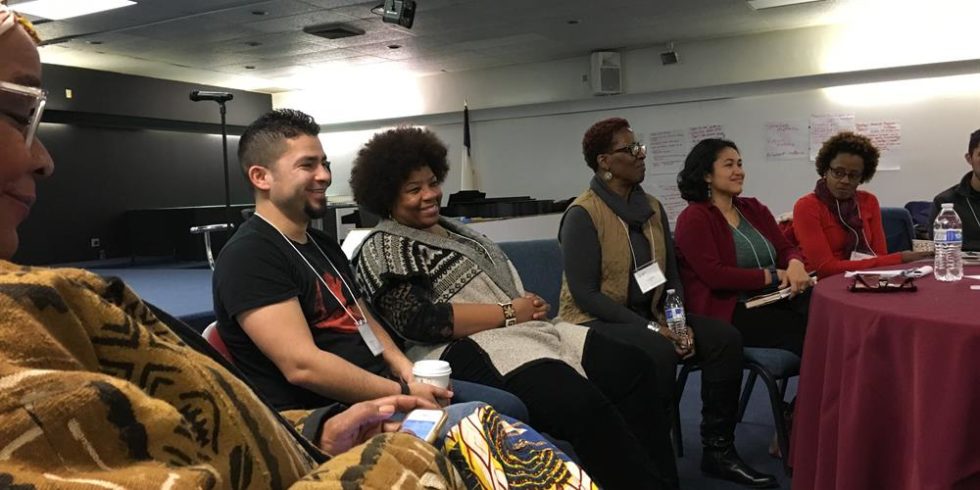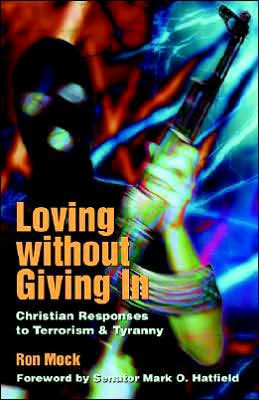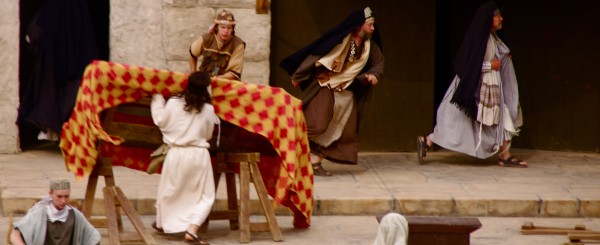
This article was originally published in the Fall 2024 issue of MennoMedia’s Leader Magazine. Illustration of George Blaurock generated using DALL-E by Tim Nafziger, August 26, 2024
As Mennonites and other Anabaptists prepare to celebrate the 500th anniversary of Anabaptism, we are marking the anniversary of January 21, 1525, when George Blaurock and Conrad Grebel gathered with others for a secret meeting in the house of Felix Manz in Zurich, Switzerland.
Earlier that day these reformers had lost a contentious theological debate in the city. Zurich city council had declared their meetings illegal and ordered them to baptize all their unbaptized children. Yet those gathered felt the bible was leading them differently: baptism should be an adult decision upon confession of faith. Blaurock turned to Grebel and asked him to baptize him. As the story goes, Grebel obliged and Blaurock became the first Anabaptist: twice baptized.
But this story is only one part of the Anabaptist origins. It is a story that has been told to intentionally minimize the stories of other radical reformers.
Mennonite Action and Vincent Harding
Before we tell the full origin story, let’s go 499 years forward to another January morning, this one in 2024. It’s January 16 and over a hundred Mennonites are walking through the Cannon House Office Building in Washington, D.C. This is part of the Capitol complex: “temple of our Democracy” according to house speaker Nancy Pelosi.
Those gathered are part of a group called Mennonite Action calling for a ceasefire in Gaza. On a pre-arranged signal, they all sit down. It is a creative disruption, like Jesus’ nonviolent direct action in the temple in Mark 11:11-19. Rather than pulling out a whip, the Anabaptists sit down and began singing hymns until they are arrested by Capitol police.
Mennonite Action is building on the work of groups like Pink Menno, Community Peacemaker Teams and On Earth Peace. These are Anabaptist-rooted groups who have gone beyond conscientious objection to actively working for justice and peace. They have often faced pushback from Mennonites who are more focused on personal holiness and traditional ideas of nonresistance.
(more…)
TimN
August 27, 2024
Anabaptism, Four Streams of Anabaptism Series, Mennonite Action, Nonviolence, Peace & Peacemaking, Politics, Power, Social movements
Read more >

For the last few weeks I’ve been hearing a lot about ChatGPT, an artificial intelligence chatbot that can tell stories, write code and answers questions. My brother had told me he’d had it write code for him and then correct bugs in the code when he pointed it out to ChatGPT. I was intrigued. I’d experimented some with Stable Diffusion that generates art based on prompts and also with short stories written by AI, but the buzz on the internet seemed to indicate this chat bot was taking things to a new level.
This evening I finally sat down to try it out. I started by asking ChatGPT to generate some Amish romance stories set in space, which it dutifully did with fairly cliched results. Then I moved on to a a much more obscure sub-genre: Amish Cyberpunk. This is a microgenre of which I am a huge fan boy. There’s only three novels in it that I am aware, all by author Stephen Beachy. If you want to hear more about it, check out this podcast interview I did on his first Amish Cyberpunk Novel: Zeke and the Singularity.
I thought that Amish Cyberpunk would provide a novel challenge for ChatGPT: combining a well known religious community (which many of my ancestors were part of) with a well known science fiction genre. (more…)
TimN
December 13, 2022
Peace & Peacemaking, Stories, Technology, Theology
Read more >

Photo: Participants at the February 2017 Hope for the Future gatherings. From left to right: Rafael Barahona, Calenthia Dowdy, Ann Jacobs, Evelin Gonzalez and Colleen Whigham-Brockington. Photo by Jenny Perez Castro.
This piece was originally published in June 2017 in The Mennonite magazine.
It’s been seven months since I last wrote in this space about the results of the U.S. presidential election. Since then the broader shape of Trumpism has become clearer: there is a growing wave of misogynist and openly white supremacist groups in the United States that are emboldened to target women, Muslims, immigrants, black people and many others.
For many of us who are white, this feels new and different, but for peoples indigenous to this continent and for people of color, this is simply a highly visible form of what they’ve faced for a long time. My friend Dr. Joe Pruitt recently told me the story of his father, a black man, who fled the south after he received lynching threats due to his friendliness with white women. Closer to home and more recently, my friend Raul Lopez talked about visiting the Ojai valley in California, where I live. As a young man (10 years ago), he and his friends were followed around by white men in white pickup trucks who made it very clear he that he and his friends were not welcome. That hatred is invisible to me as a white person. (more…)
TimN
February 15, 2021
antiracism, Mennonite Church USA, Peace & Peacemaking
Read more >
I was a reservist with Christian Peacemaker Teams living in London in 2005 during the kidnapping of Norman Kember, Harmeet Singh Sooden, Jim Loney and Tom Fox. Today is the 13th anniversary of the date they were taken.
On that last day of ordinary time
Norman, Harmeet, Jim and Tom walk across a parking lot
in Baghdad and get into a van.
Years later, Jim can’t remember “those last, unremarkable motions.”
The next morning (the first Sunday of Advent)
The BBC called me at noon.
The voice at the other end of the line was chasing rumors:
We heard that four members of Christian Peacemaker Teams were kidnapped.
What do you know?
What if Christians took the same risks for peace…
The van exits the lot, abruptly stops;
Men with big guns open the door,
shove the four to the floor
and into the tomb.
(more…)
TimN
November 26, 2018
Peace & Peacemaking, Poetrykidnapping
Read more >

I originally published this review in with the Anabaptist Network in November of 2005 while working with them in London, England. I’ve been surprised how often the themes in this book have come back to me over the years and its one of the few books that made its way with me all the way from London to Chicago and then to Oak View.
Loving without Giving in: Christian Responses to Terrorism and Tyranny
Ron Mock (Telford: Cascadia Publishing House, 2004) £14.50
In the wake of the 7 July bombings and the response of the British Government, Christians in the United Kingdom would do well to consider this book. Ron Mock begins by working through five aspects of terrorism: violence, lawlessness, political motivation, targeting of civilians and operation through fear. In each area he looks at examples of terrorism that fall within his criteria and case studies that do not.
(more…)
TimN
February 8, 2018
Peace & Peacemaking, Polarization, Tactics, Terrorism, Uncategorized
Read more >
“The Spirit of the Lord is upon me, because he has anointed me to bring good news to the poor. He has sent me to proclaim release to the captives and recovery of sight to the blind, to let the oppressed go free, to proclaim the year of the Lord’s favor.” Luke 4:18-19
“…the hands of none of us are clean if we bend not our energies to righting these great wrongs.” W.E.B. DuBois
I traveled to Ferguson, MO from August 21-24 along with two other community organizers from New Orleans, LA. We visited the Canfield Green apartments where 18 year old Michael Brown was shot and killed by a police officer and where beautiful memorials had been created. One sign referenced the story of Cain and Abel in Genesis 4: 8-10 — “And the Lord says: ‘What have you done? The voice of your brother’s blood cries out.” And indeed, roses lined the street where traces of Michael’s blood were still evident, crying out for those with ears to hear.
We talked with Ferguson residents, including a group camped out in a parking lot across from the police station and some youth camped in the “approved assembly area” in the parking lot of an old car dealership. Both of these groups said they planned to stay until Darren Wilson, the police officer who killed Michael Brown was indicted, and we brought them water and ice and fruit as a way of expressing our support and appreciation for their persistent call for justice.
That evening, we saw how W. Florissant Avenue was closed to all thru traffic beginning at its intersection with Chambers Road, a full mile away from the “approved assembly area.” Anyone who wanted to join the protest had to walk a mile just to get to the protest site and then march in a spot cut off from the rest of the public, where police imposed a “5 second rule” which required protesters to keep moving, breaking up any conversations among groups of protesters who began to gather together.
This was only the most recent attempt to contain and squash people’s cries for justice. Others who had been in Ferguson earlier reported even more intense police repression. Police shot tear gas and rubber bullets at unarmed people who were in places they had every right to be including their own backyards, driveways and doorways. Purvi Shah of the Center for Constitutional Rights was part of a multigenerational crowd –including a number of children– into which police fired tear gas, with no warning and a full three hours before the midnight curfew that had recently been established. Many first person stories of encounters with police oppression are available if you look for them. What we saw in Ferguson was a community under occupation by police. No one felt safer. The constant threat of violence by police toward protestors was palpable.
(more…)
PamN
August 30, 2014
antiracism, Current Events, empire, Nonviolence, Peace & Peacemaking, Police, Police Brutality, Power, Race, Social justice, Social movements, Violence, Young Folksantiracism, empire, Nonviolence, Peace & Peacemaking, Police Brutality, Power, Race, Social movements, Violence
Read more >
We are Anabaptists. We are Mennonites. We are distinct from other Protestants and denominations. We care about peace, justice, community. We are a unique and special people.
Many of us feel this way or at least I know, at times, I do. There is a special quality of Christianity that is evidenced in Anabaptism. Yes, we were persecuted by the Holy Catholic Church, but we were also persecuted by fellow Protestants. There is severity and deep conviction in our confession of faith.
Yet, in truth, too often we rest on the laurels of our Anabaptist forebears. We recall or express nostalgia for the countercultural, anti-empire sentiments and actions of those who came before us, all the while colluding with the current empire on many levels in our life. Some of us (even unwittingly) invest in stocks for pharmaceutical corporations and weapons manufacturers, thus endorsing a system that benefit from death and destruction.
Many persons and whole churches have substituted absolute pacifism with Just War Theory. In that regard we have embraced Augustinean Christianity to the detriment of Jesus’ command to love even our enemies who persecute and abuse us. We claim a Mennonite identity, but too often embrace an American identity or political ideology (whether left or right). We fail to recognize the radical calling upon our lives, which is to root ourselves in a Christ identity.
Some of us need a fresh baptism, a next baptism to awaken us to Christ’s calling upon our lives. We may have been baptized in water, but now we need a fire baptism to burn out the iniquity and inequality that pervades our lives. Like a prairie fire that burns the dead things and promotes richer soil, so too do we need the Spirit of fire to prepare us to live more deeply and richly. (more…)
JasonS
August 20, 2014
activism, Anabaptism, antiracism, Biographical, Books, Change, Church, Class, Community, Conscientious Objection, Economics, empire, Martyrdom, Mennonite Church USA, Military, neo-Anabaptism, New Monasticism, Nonviolence, Peace & Peacemaking, Social justice, Social movements, Spiritual Life, Stories, Urban Ministry, Writing
Read more >
MENNONITE CHURCH USA CHURCHWIDE STATEMENT ON LGBTQ COMMUNITIES, DIVERSITY, POWER, OPPRESSION &Â PRIVILEGE*
Introduction
Mennonite Church USA has roots in seventeenth-century churches planted by what today we might call “radicals” and “social justice activists” from Europe. Our church continues to grow and be enlivened by people who join us from many countries, backgrounds, races, genders, sexual orientations, abilities, as well as other diversities and differences. As Christians, we believe we are called to welcome these seekers of church community in our congregations and communities, especially as our government fails to serve all but a privileged few, with harsh laws frequently punishing difference. Assumptions about identity make some people more vulnerable to political biases and discrimination than others. Our concerns about the status of peace and justice in this country and in this world relate to how people are treated based on race, nationality, ethnicity, gender, sexual orientation, class, ability status, citizen status, religious identity as well as other statuses.
We reject our country’s mistreatment of people, repent of our silence, and commit ourselves to act with and on behalf of all our community members regardless of any status. (more…)
JenniferY
February 17, 2014
activism, antiracism, Current Events, disabilities, Ethics, Exclusion, Faith, Gender, Group Identity, Immigration, Indigenous, Leadership, LGBTQ, Love, Mennonite Church USA, Nonviolence, Peace & Peacemaking, Power, Privilege, Race, Sex, Tactics, Violencebisexual, gay, Inclusion, lesbian, LGBTQ, MC USA, MC USA Executive Board, Mennonite, queer, Statement, transgender
Read more >
You may have seen news lately about different countries considering new harsher penalties for sodomy or whatever language they might choose. It’s happening in Russia, Uganda, Nigeria and Kenya and I’m sure many other places.
These days in the US many queer folk are tracking the lawsuits in each state that are striking down the same-sex marriage bans. It’s exciting for sure and I look forward to June of this year when all consenting adults will finally be able to marry here in Illinois.
In the midst of all this though I see news stories of a strong trend in the opposite direction in many other parts of the world. When I see a young man accused of homosexuality being tried and beaten to death in the streets by a vigilante mob I’m shocked! I never worry about this happening to me when I step outside my home in Chicago. While there are parts of this country I worry that I might be physically harmed for being gay I never expect to be put to death due to my sexuality.
The disturbing thing about these laws is that the consequence imposed by the government for breaking these laws is meaningless. The reality is that that people accused of homosexuality may never make it to court and if they do they may even be killed in the courtroom. This is how intense the homophobia is in some countries.
When I read the article about what happened in Nigeria my mind went certain places and I suspect that many people’s minds and hearts do the same. I think about how terrible these people are. I wonder how they can do these awful things. How does someone cultivate this kind of hatred and violence in their heart? Finally I become indignant! (more…)
benjaminjanderson
January 27, 2014
Bias, Death, Exclusion, Family, Hate, LGBTQ, Martyrdom, Peace & Peacemaking, Polarization, Power, Privilege, Race, Social justice, Violence
Read more >
Crossposted from A Bible and a Bat’leth
Sermon preached on May 5, 2013 at Mississauga Mennonite Fellowship. In my introduction, I acknowledge the land and the many nations who have used, shared and lived on it since time immemorial, especially the Mississauga people. I introduce Christian Peacemaker Teams Aboriginal Justice Team and thank the congregation for inviting us to speak.
The following scripture texts have already been read: Genesis 11:1-9 and John 8:31-43
In her 2009 TED talk, entitled The Danger of the Single Story, the Nigerian writer Chimamanda Adichie, starts by identifying the stories she read as a child. Growing up in Nigeria, she began to read early on, and she read the books she could get; British and American children’s books. At the age of seven she began write her own stories.
“All my characters were white, blue eyed. They played in the snow. They ate apples. And they talked a lot about the weather. How lovely it was that the sun had come out. Now this despite the fact that I lived in Nigeria, had never been outside of Nigeria. We didn’t have snow, we ate mangos, and we never talked about the weather because there was no need to.”
The stories she read as a child only featured foreigners, so she wrote about foreigners, without even thinking that literature could be about Nigerian children until she encountered Nigerian writers.
Later, attending University in the USA, her roommate is surprised that she speaks English so well, that she knows how to use a stove. When she asks to listen to some of her tribal music, the roommate is disappointed to be given a cassette tape of Mariah Carey.
(more…)
PeterH
July 15, 2013
bioregionalism, Civilization, Indigenous, Peace & Peacemaking, Stories, The Bible
Read more >
Crossposted from As of Yet Untitled
An energetic mix of excitement and anxiety hung in the air. It was 10 pm on July 4, the second-to-last night of the Mennonite Church USA convention in the Pink Menno space. I was sitting with 40 others as we talked through the following morning. We planned to enter the national delegate assembly of Mennonite Church USA and use our bodies to make a visible, silent witness challenging the church to repent from its treatment of LGBTQ people. We didn’t know what would happen, but we knew that we had to take a stand.
Only 24 hours earlier, seven Pink Menno planners had developed the vision for the witness. It was our third convention organizing Pink Menno hymn sings and they had become a fun, familiar presence outside the worship spaces. We had our space a block and a half from the convention center. We had hundreds of people coming to seminars we hosted. However, we were a known quantity that could be too easily ignored. It was a situation that has been faced by many social change movements over the years.
Tension and MLK
Tension is a crucial part of nonviolent social change work, whether in the church or in broader society. (more…)
TimN
July 11, 2013
activism, Allyhood, LGBTQ, Mennonite Church USA, Peace & Peacemaking, TacticsErvin Stutzman
Read more >
“I will tell you something about stories . . . They aren’t just entertainment. Don’t be fooled. They are all we have, you see, all we have to fight off illness and death.”
~Leslie Marmon Silko
I truly believe that sharing our stories–including the actual process of writing them out–is one of our most powerful tools–a small act that starts a transformation in ourselves and the world around us. What if sharing our stories could help future generations of both men and women? What if a story could “overturn a table” in the various Temples of our day– including in the bellies of our own communities and congregations? Social media’s given more women affiliated with Mennonite Church USA a chance to get a glimpse of the diversity and reality present in our national congregations and communities–a reality and diversity that’s not always heard or lived out, let alone celebrated.
Let’s change that. Every step and every story counts.
Wanted: Stories from any woman or girl who considers herself Mennonite or shaped by the Anabaptist-Mennonite traditions. Check out the newly launched Mennonite Monologues web site where stories can be told through essays, poems, art, songs, photographs, and other forms of creative expression. The Women and Leadership Project needs stories that speak to your truth and experience: joy and gratitude, as well as stories of lament and pain. Multiple stories are encouraged. Whatever story you wish to tell, it is welcome. All will be collected on our blog and may be submitted with a name or anonymously.
“Women have often felt insane when cleaving to the truth of our experience. Our future depends on the sanity of each of us, and we have a profound stake, beyond the personal, in the project of describing our reality as candidly and fully as we can to each other.”
~Adrienne Rich
Prompts to help get you started
-As a woman, what are the stories that have shaped your sense of leadership?
-What are your experiences of being called (or not called) to leadership in Mennonite Church USA?
-How have you been empowered by the church to lead?
-How have you been discouraged from taking on leadership roles?
-Do you think there is a difference in the ways women and men are cultivated to be leaders?
-Did you grow up seeing women in leadership?
-Who were your mentors?
-What is your ideal vision of church leadership in the future? Where do you fit in?
YAR, we need your awesomely radical selves! Thanks for helping to spread the word. ~Women in Leadership Project, Mennonite Monologues team
BeccaJayne
July 9, 2013
activism, Anabaptism, Blog, Change, Community, Education, Gender, Mennonite Church USA, Peace & Peacemaking, Sexism, Uncategorized, WritingFeminism, peacemaking, undoing sexism, Women in Leadership
Read more >

Oh how I wish Jesus had set a better example!
Let’s be reasonable here. He should have proposed his prophetic action in consultation with the religious leadership far in advance of the Passover feasts. This would have reduced so much stress for the Pharisees and scribes.
He shouldn’t have made his case using sacred scriptures. Too risky, too radical, too much playing his religion card like he knew it all. Why did he have to bring Isaiah or Jeremiah into this, crazy activists claiming God’s house for foreigners, eunuchs and the like! One issue at a time now! How dare he come to the temple with an agenda!
He certainly should have worked within the structures to ensure no one would be offended, no one would risk the chance at dialogue due to untimely, unvetted mention of certain outcasts. Didn’t he know that if you want to include these people, you have to exclude those people.
He should have toned it down at least a little, no name-calling nor blocking pedestrian traffic in the temple. And what’s with the whip of cords!?
Read more and get involved over at overturningtables.org!
CharlettaE
July 1, 2013
activism, Allyhood, Anabaptism, antiracism, Current Events, Exclusion, Gender, Group Identity, Immigration, Indigenous, LGBTQ, Mennonite Church USA, Peace & Peacemaking, Polarization, Power, Privilege, Race, Social justice, Spiritual Life
Read more >
Occasionally, I end up going to one of those “Christian” stores, or I get some sort of advertisement from them. Where I live, they are called “Family Christian Stores” with an emphasis on the family part. In other parts of the country, such stores also exist, but with different names. We have all been to those kinds of places. When I was an evangelical, that was where you went to get a Bible or some accessory for it, but I still occasionally end up going there for one reason or another. These stores have books by Sarah Palin and Joel Osteen, and entire walls devoted to American flags and New International Versions. We all know the type.
A couple of weeks ago, I received an advertisement catalog from one of those stores, and for some reason I looked through it. First, there was a bunch of customized Bibles. Sort of like some sort of collector’s item, there was a bunch of needless varieties of Bibles for purchasing. I always see this whenever I go to any bookstore — people treating the Bible like some sort of fashion statement. What really annoyed me was when I saw this. They have this line of patriotic clothing, but it is not just patriotic. They mix Christianity into their patriotism in an amazing way. They even have a “Jesus Saves” shirt stylized to read “JesUSAves.” They literally made Jesus an American and linked Christian salvation to Americanism. They are mixing Christianity, capitalism, and the American state into one single chimera. Now, this is not new. I have known that they were doing this for a long time, but this example proved to be the ideal opportunity to bring up the issue. (more…)
KevinD
May 29, 2013
Church, Conscientious Objection, Consumerism, Corporations, culture, Current Events, Economics, empire, Foreign Policy, International Relations, Military, Nonviolence, patriotism, Peace & Peacemaking, US Military, Violence, warAmerica, Anabaptism, Church, Constantinianism, empire, Gospel, Kingdom of God, Rome
Read more >
As Anabaptism emerged in 1525, opponents of this new movement described those who became a part of this movement as “radicals.” They even described it as “the Radical Reformation.” Why did they describe this movement as “radical”?
In one way it seems fitting. The early Anabaptists did not seek to reform the church but to restore it to the way of Jesus–the way in which the community of Jesus was gathered and was taught. This way meant taking the teachings and life of Jesus seriously; to live according to his example. For example, given that Jesus was the Prince of Peace, it was a call for his followers to live by this same peace. When Jesus taught to love one’s enemies, it was a call to not seek ways of killing someone. Jesus, the kingdom that he inaugurated, and his invitation to participate in this kingdom is radical. Therefore to live by his example would be very radical!
There were several particular reasons why the Anabaptists were described as “radicals” in the 16th century. One reason was that to follow in the ways of Jesus required one to live according to his example. Menno Simons wrote in 1539 that “Whosoever boasts that he is a Christian, the same must walk as Christ walked.” A follower would need to make a voluntary decision to follow the way of Jesus. Second, was the conviction that to follow Jesus, the Prince of Peace, meant also being people of peace. This meant practicing nonviolence even if confronted by violence. “Pacifism” is the word used to describe this path of discipleship. They believed that God’s shalom (peace) would not come through violence. Third, the ways of Jesus, his kingdom, and thus the ways of the community–the church–seeking to be faithful to Jesus and the kingdom would lead to practices that would conflict with the principalities and powers. The focus of these principalities and powers was not, and would not be, the pursuit of the kingdom of God. This becomes apparent in that “the powers” normally use a top-down, authoritarian form of ruler-ship and power, whereas the Anabaptist understanding of church assumes a bottom-up, servant attitude towards the other. Also, the state could not depend on these radicals to participate in the call to war and killing. This was revolutionary. The call of the disciple of Jesus was to follow his will even if that put them into conflict with the will and desire of the state.
(more…)
AndrewS
May 7, 2013
Anabaptism, Discipleship, Ethics, Peace & Peacemaking, Power, TheologyAnabaptism, gelassenheit, pacifism, peace, radical, Radical Reformation, self-surrender, shalom
Read more >




